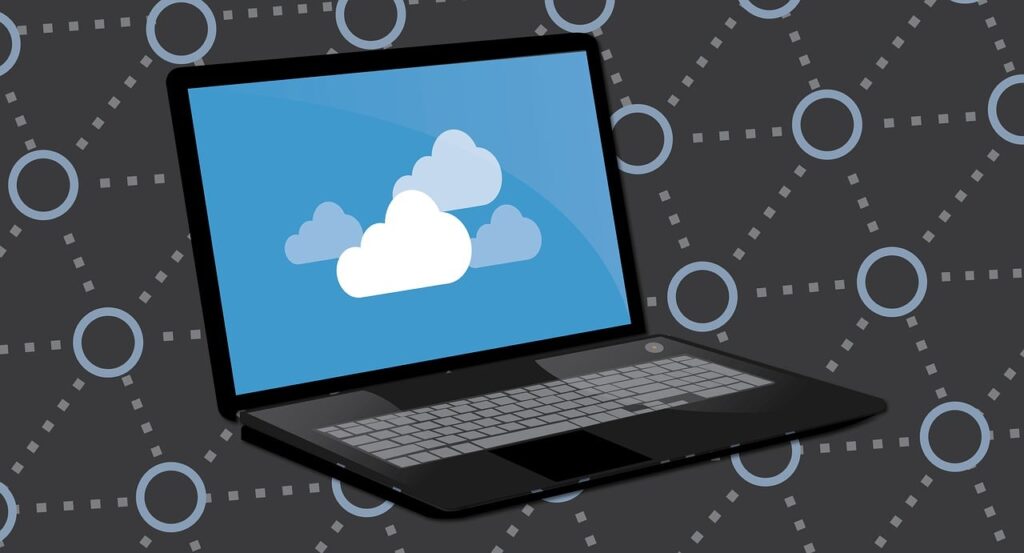Data Security Misconceptions Abound
There are a lot of common misconceptions about cloud computing and cloud backups that lead people to believe they are unsafe or not secure. With data leaks often making headlines and dozens of managed backup services vying for your attention, it’s no surprise that there are plenty of people who are skeptical of security on cloud servers.
Oftentimes, when people think of cloud servers, the thought of a big data “cloud” floating somewhere in the sky comes to mind. While such imagery makes it easy to teach or understand the basics of cloud backups, it is far from an accurate model of how they work. Contrary to the belief of some, cloud servers are neither Skynet nor a “magical” cloud, keeping tabs on all your data at all times. Three of the most common misconceptions about cloud servers are about data security, privacy, and customization
Data Security: Many people feel that storing data in the cloud is less safe than putting it on physical servers. In truth, credible cloud service providers make significant investments in security features like encryption, access controls, and compliance certifications. When managed appropriately, cloud security can be as powerful as, if not stronger than, on-premises solutions.
Data Privacy: Some individuals think that by moving data to the cloud, they relinquish control and privacy over their data. While it’s important to understand the terms and conditions of your cloud service provider, most reputable providers offer strong privacy protections and data ownership rights to their customers.
Lack of Customization: Another common misperception is that cloud servers provide less customization and flexibility than physical servers. In actuality, cloud infrastructure can be very flexible, allowing organizations to tailor resources, storage, and computing power to their specific requirements. Cloud providers offer a wide range of services and choices for customizing infrastructure to meet your needs.
To address these misconceptions and make educated decisions, organizations and consumers must educate themselves about the capabilities and limitations of cloud servers and choose reliable cloud backup service providers.
The Reality of Cloud Servers: Security and Encryption
While the idea of a magical cloud with data is a fun one, the reality is that your data does have a physical backup. Cloud servers are typically hosted within highly secure warehouses that let only a few employees enter. The security of these warehouses is of paramount importance to the cloud service provider’s reputation and business model.
Physical security is only the beginning. There is, of course, concern over someone intercepting your files in transit or “in the cloud”. This is where highly encrypted files come into play. Rather than sending your data around from cloud server to user and beyond in its original form, the information within such files is “scrambled,” or encrypted, making it extremely difficult to understand or put to use until it reaches its intended destination.
Cloud Server Considerations for Small Businesses
When a small business is considering cloud server backup solutions, several important considerations should be taken into account to make an informed decision. Here are the top considerations:
- Data Security and Compliance: Ensure that the cloud backup provider offers robust security measures, encryption, and compliance management services with relevant regulations (e.g., GDPR, HIPAA). Data security is paramount to protecting sensitive business information.
- Data Retention and Versioning: Check the backup solution’s data retention policies and versioning capabilities. It should allow you to recover historical versions of files in the event of accidental changes or deletions.
- Scalability: Assess whether the cloud backup solution can grow with your business. Ensure it can accommodate your data storage needs as your business expands.
- Reliability and Uptime: Choose a provider with a strong track record of uptime and reliability. Downtime can be costly for your business, so look for a provider with a high service level agreement (SLA).
- Ease of Use: The cloud backup solution should be user-friendly, with an intuitive interface that allows easy configuration and monitoring of backups.
Expert Data Security Vigilance
From the get-go, your data is safe and sound on cloud servers, but the enhanced security doesn’t end there. With locally stored physical hard drives, you’ll have to rely on your wit and whim to keep security up-to-date on your computer(s) and system(s). On the other hand, by using cloud servers for your data, you’ll have industry experts working around the clock to ensure constant security updates are done and best practices are abided by. You’re not simply handing over your data to some average Joe with a server warehouse in their backyard. On the contrary, professionals who are knowledgeable and take your privacy and information very seriously are keeping your data safe.
By working with a cybersecurity consulting company like Alexonet, you’ll be able to get cloud backups as part of your ongoing IT security package and more, catered to your exact needs. There’s no reason to wait for a storm to make you wish you used cloud backups or for accidental deletions of data to set you back weeks or months. Invest in your company’s future with cloud server backups!

